Once Upon a Tragedy: A PhotoStory of When Haiyan Struck the Philippines
– by Carla Marez Peruelo (Wannabe)
#YolandaPH #reliefPH #BangonPH #Visayas #Haiyan2121 #RebuildVISAYAS

by Carla Marez Peruelo
Blog: Wannabe – InkBlots and IceBergs
Original blog article: click the picture for URL
Once upon a time, somewhere between the Pacific Ocean and the South China Sea…
…there lay a unique archipelago named the Philippines.
• • •
It boasted of pristine-white beaches with clear blue waters…
…abundant natural resources found nowhere else in the world…
…and picturesque sunsets of the kind that’ll take your breath away.
• • •
But despite these stunning treasures, the Philippines hosts a people of notable humility and simplicity.
The Filipinos are a remarkable people. They are hard-working and resilient, patiently bearing the hardship of life…
…but they never forget to smile.

No matter what month of the year it is, there’s always a festivity somewhere in its 7,107 islands.
They are among the happiest people in the world…
…and indeed their smiles are among the most beautiful…
…the most authentic…

But as in all stories, it can’t be all smiles and peaceful days for the main characters; a stormy time has to come. Only, for this particular story, the “stormy time” is quite a literal one.
• • •
Supertyphoon Haiyan.

Believed to be one of the strongest typhoons ever — the equivalent of a Category 5 hurricane, packing estimated maximum sustained winds of 195 miles per hour — Typhoon Haiyan had the whole world on tenterhooks.
Unlike its fellow supertyphoons which have come and gone without causing much fuss (as they did not make landfall and simply contented themselves raining down upon vast oceans), Typhoon Haiyan wanted to be a show-off and decided that it had to make its presence felt on inhabited land.
At first, it wondered where it ought to go, and then something unique down South China Sea caught its eye (no pun intended).
Hmm, the Philippine archipelago, perhaps?
Thus Haiyan (local name Yolanda) rained down on the Philippines that fateful day.
Okay, so “rained down” is totally an understatement.
“Ravaged” seems to be the more fitting term. Entire cities were flattened in Samar and Leyte, the worst-hit parts of the country.
The Filipino people living in these worst-hit areas faced a terrible ordeal. The widespread devastation Haiyan brought upon Central Philippines was nothing short of apocalyptic.
Power and communication lines were cut off…
…and the damage and rubble extended to as far as any of them could see.
Transport vehicles were destroyed.
But even if our jeeps weren’t destroyed, asked Juan, where would we use them? The roads are unpassable.
And even if the roads were passable, added Pedro, where would we go?
Certainly, we have no office today…or for quite some time.
We have no class.
We have no market day.
We don’t even have a roof…
…and in fact, we have no home.
We have but a small bundle of scavenged things…
…but we have lost more than our possessions.
We have lost our community.
We have lost lives.
Where do we go from here?
• • •
The Filipino people cried desperately for help.

No sooner had the Filipinos called, when the world was quick to respond, “We are here. We will help.”
And bit by bit, the Filipino could smile again.
Hope was born amidst a sea of hopeless destruction…
…and the Filipinos could only be grateful for the great helping hand of the world’s nations that pledged and delivered aid…
…and look up to the warm generosity with which the rest of humanity embraced it.
As much as a happily-ever-after would sound good right about now, the real story dictates another plot twist. The outpouring of help from both within and outside the Philippines did not manage to easily flow into the hollow vessel Haiyan bore into the middle of the country.
As days passed, the country began to speculate on why only trickles were making their way out of a full pitcher when so many glasses needed to be filled.
The Filipino people were divided on the issue.
Was it lack of organization and incompetence in leadership?
Or are we expecting too much and being too hard on the government?
The rest of the Filipinos wondered and debated and thought some more, while those badly afflicted could only hold on to hope that help would come sooner than the hooded black figure with a scythe.
• • •
Meanwhile, a few other matters were irking Filipinos.

Philippine broadcaster Korina Sanchez, wife of DILG Sec. Mar Roxas, clashed with CNN’s Anderson Cooper didn’t know what he was talking about
Philippine Vice President Jejomar Binay earned the wrath of the Filipino people when relief goods for Haiyan-hit areas were boldly stamped with his name
Korina Sanchez also received additional backlash when netizens spotted her name imprinted on these slippers donated for Haiyan victims
But such issues of political gimmickry, attempts to protect the government’s image, and finger-pointing battles between the LGUs and the national government are, as Anderson Cooper would put it, “all just kind of a bizarre side show.“ Cooper continues, “The only thing that matters is what’s happening on the ground, and is aid getting to people who need it most?”
That is indeed the right question to ask. And while individual civilians can only do (and rage) so much to help in the relief efforts and try to hasten the delivery of aid to the needy, there’s no denying that in the aftermath of this tragedy, we saw no shortage of inspiring acts of altruism and kindness by people from all walks of life, from all across the globe.
With the outpouring of such help and support from a world that no longer recognizes borders in times of calamity, of heroic acts of volunteerism and sacrifice, and even of small yet touching acts of kindness, the Filipino people is bound to pull through. After all, their resilience is unmatched…
…their fire to survive no matter what the odds cannot be quenched by any typhoon…
…their well of optimism goes deep…
…their faith is strong…
…their sense of humor even in difficult times is unparalleled…
…and their smiles are still among the best.
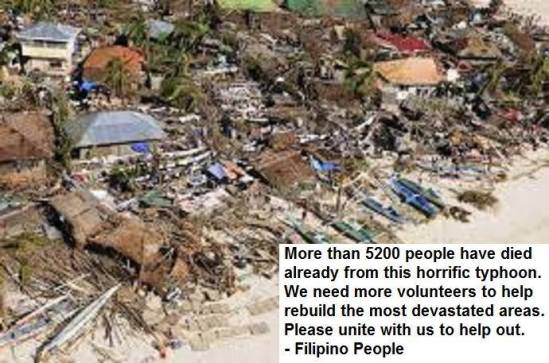
Their flag may currently be worn and torn in some places, but they continue to raise it up.
As the world joins the country in clearing out the debris of the Haiyan aftermath…
…in rebuilding homes and lives…
…in contributing small acts of kindness that snowball to great change…
…and in lighting hope amidst darkness…
…the Filipino people will once again rise up, smiling.
Because typhoon or no typhoon…
…this people knows how to bear hardship and uphold incredible resilience in daily life.

Such is the story of the Filipinos as a people, lived out in day-to-day battle, and only challenged and highlighted by the great tragedy that made the rest of the world shudder to even witness.
A happy-ever-after is not near in sight, and the story of the Filipino people’s recovery from the devastation brought by Supertyphoon Haiyan is far from over. But this story will not have to end in a tragic scene, either.
¨
The flattened cities in Central Philippines — in Leyte, Samar, and others — will rise up again. Their wiping out was catastrophic, but it brings the potential of a clean slate for a fresh start. Hope is not lost. Amidst all the rubble, the Filipino flag will continue to unfurl proud and strong, with no hesitation in its wave and no hiding of its sun…
For as beautiful and picturesque as its sunsets are, the Philippines’ sunrise is even more majestic. No matter how many earthquakes rock its beds and no matter how many typhoons lash out at it, every morning, the sun still rises to smile down on this country…

…Or more probably, the sun only reflects the smile the Filipino people has for the world, every single time it rises to face another day.






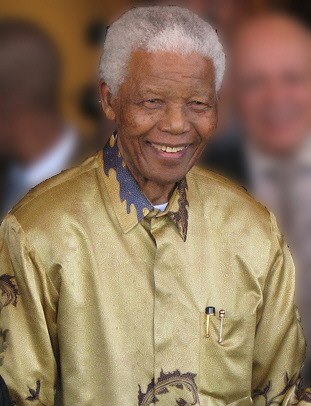
















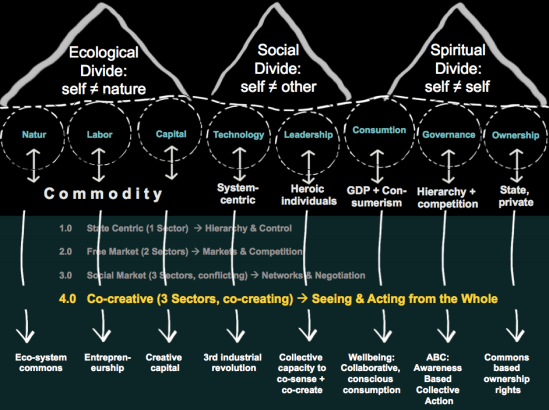
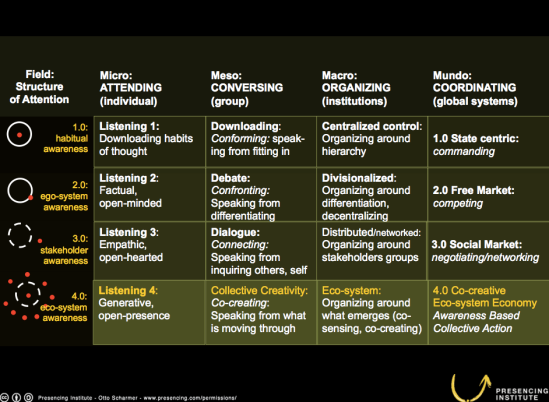


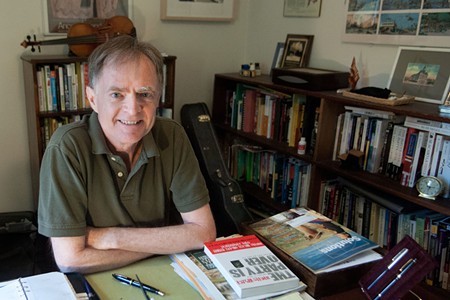
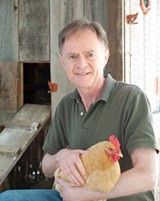

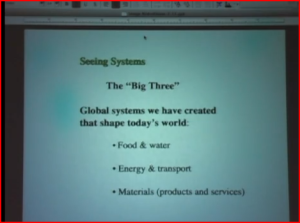
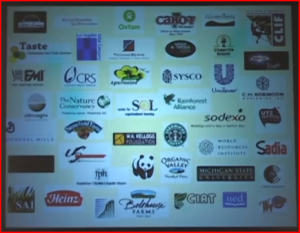



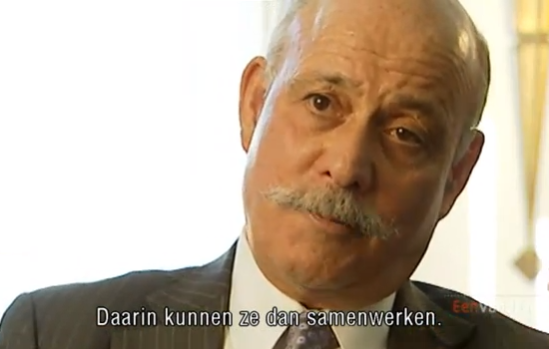
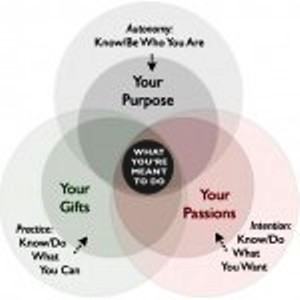



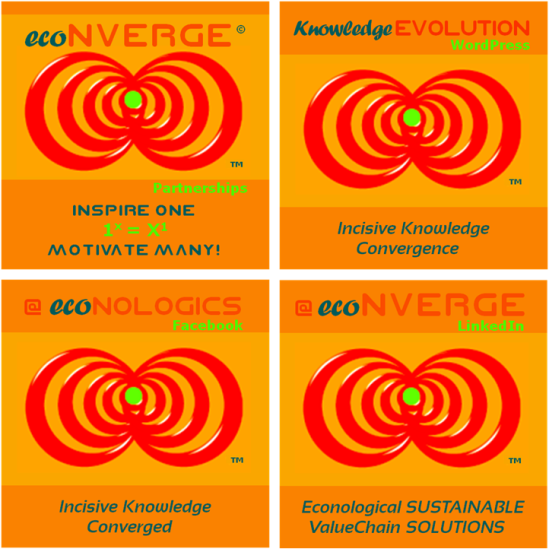
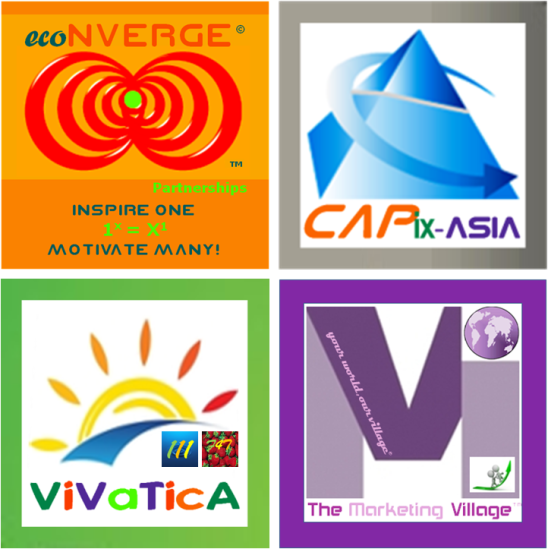


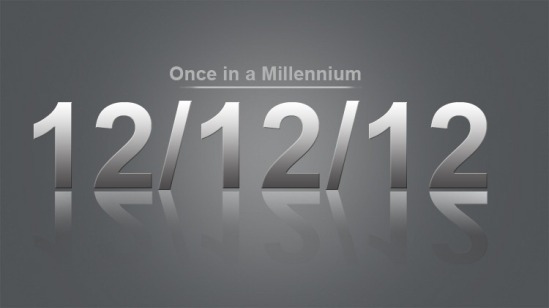


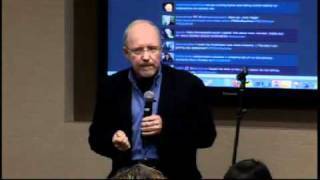
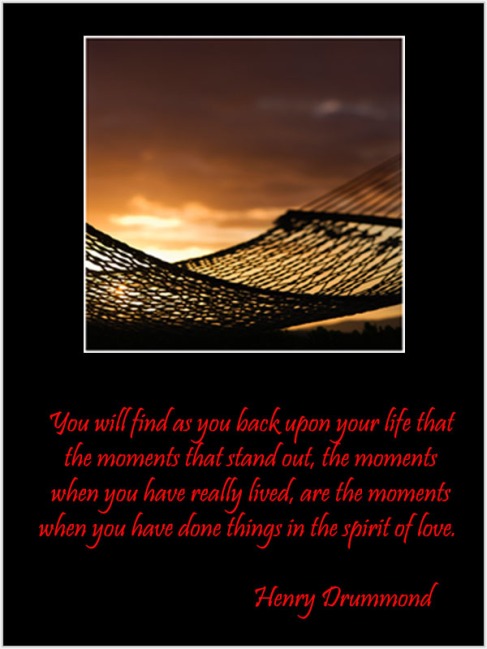
You must be logged in to post a comment.